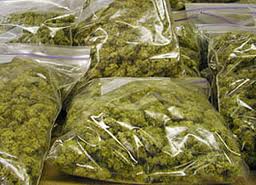 The Montgomery County Council is determined to crack down on driving while impaired by cannabis, but the method by which to accomplish this goal is still in still very much up for debate. This week members of the Montgomery County Council’s Public Safety Committee met to discuss the issue of marijuana induced impaired driving and the meeting offered some insight on the challenges facing police officers who are tasked with enforcing Maryland impaired driving laws. There is currently no valid scientific test for marijuana impairment that compares to a breathalyzer test, which is used to test blood alcohol content in DUI cases. Alabama is apparently one of the only states in the country that employs court approved saliva tests for cannabis concentration. Other states have been reluctant to use this questionable methodology due in part to THC being tracible for several weeks after ingestion.
The Montgomery County Council is determined to crack down on driving while impaired by cannabis, but the method by which to accomplish this goal is still in still very much up for debate. This week members of the Montgomery County Council’s Public Safety Committee met to discuss the issue of marijuana induced impaired driving and the meeting offered some insight on the challenges facing police officers who are tasked with enforcing Maryland impaired driving laws. There is currently no valid scientific test for marijuana impairment that compares to a breathalyzer test, which is used to test blood alcohol content in DUI cases. Alabama is apparently one of the only states in the country that employs court approved saliva tests for cannabis concentration. Other states have been reluctant to use this questionable methodology due in part to THC being tracible for several weeks after ingestion.
Without a certified scientific test for cannabis concentration law enforcement officers must rely on their observations of the suspect to prove impairment to a judge or jury. These include the driving pattern of the suspect, his or her statements and standard field sobriety exercise such as the HGN test, walk and turn and the one-legged stand. Officers need to establish evidence of impairment before requesting participation in these exercises, and skilled criminal defense lawyers can often pick them apart if there is no corroborating evidence such as a scientific test or an admission by the suspect. Still, county officials are determined to even the playing field through the use of “green labs” where law enforcement officers can hone their cannabis impairment recognition skills.
Montgomery County is home to the state’s only green lab, where volunteers ingest cannabis in a controlled environment at the county police department’s training academy. The labs have been around for a few years after originally being proposed by a veteran traffic enforcement officer in 2017. Since then, the department has hosted several sessions, which start with the volunteers smoking marijuana, vaping or consuming edibles and then transition to an observation and testing period. There is no indication that the volunteers are asked to get behind the wheel of an automobile, and realistically this could only happen under extremely controlled circumstances in a closed area. These precautions would likely limit the amount of usable data, as there is simply no way to simulate driving in actual traffic. The labs likely offer police a glimpse of how a person under the influence of cannabis may look, sound and act, though how this translates to recognition of impairment is up for debate.
 Criminal Defense Lawyer Blog
Criminal Defense Lawyer Blog








